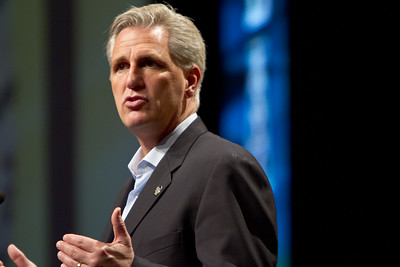US Shutdown Looms: Kevin McCarthy Faces Crucial Test – What You Need to Know
The United States is on the brink of a government shutdown, and the eyes of the nation are turned toward Capitol Hill. At the center of this looming crisis is House Republican leader Kevin McCarthy, who faces a crucial test of his leadership and negotiation skills. In this article, we will delve into the details of the US shutdown threat, the role of Kevin McCarthy, and what it all means for the country.
Understanding the US Shutdown Threat
A government shutdown occurs when Congress fails to pass a budget or a continuing resolution to fund federal agencies and programs. This results in the temporary closure of non-essential government functions, leaving federal employees without paychecks and disrupting various government services. The consequences of a shutdown can be far-reaching, affecting everything from national parks to immigration courts.
Kevin McCarthy’s Role
Kevin McCarthy, the House Minority Leader, plays a pivotal role in the budgetary process and the threat of a government shutdown. As the top-ranking Republican in the House of Representatives, McCarthy is tasked with rallying his party members and negotiating with Democrats to reach a compromise on government funding.
In recent years, McCarthy has been a key figure in budget negotiations, often serving as a bridge between the more conservative and moderate factions within the Republican Party. His ability to find common ground and maintain party unity will be put to the test in the coming days.
The Political Stakes
The US government shutdown is not merely a matter of budgetary concerns; it also has significant political implications. Both parties will seek to blame the other for the shutdown, potentially impacting public opinion and future elections. Moreover, the timing of this potential shutdown is critical, as it coincides with other pressing issues, such as infrastructure legislation and debt ceiling negotiations.
Possible Outcomes
As the deadline for government funding approaches, several scenarios are possible:
- A Last-Minute Deal: Congress could reach a compromise just before the shutdown deadline, preventing a government closure. This outcome would require skilled negotiation and bipartisan cooperation.
- Short-Term Funding: Lawmakers might pass a short-term continuing resolution to buy more time for budget negotiations. While this would avert an immediate shutdown, it only delays the problem.
- Shutdown: If no agreement is reached, a government shutdown would occur, impacting federal employees, government services, and the economy.
What Can You Do?
While the fate of government funding lies in the hands of our elected officials, there are steps you can take to stay informed and engaged:
- Follow the latest news updates to stay informed about the progress of budget negotiations.
- Contact your congressional representatives to express your concerns and priorities.
- Prepare for the potential impact of a government shutdown on your personal finances and access to government services.
Conclusion
The looming threat of a US government shutdown is a sobering reminder of the challenges facing our nation’s leaders. House Republican leader Kevin McCarthy faces a pivotal test of his leadership and negotiation skills as he works to navigate the complex budgetary landscape. The outcome of these negotiations will have far-reaching implications for the country, making it a situation worth monitoring closely in the days and weeks ahead. Stay informed, stay engaged, and hope for a resolution that serves the best interests of the American people.












